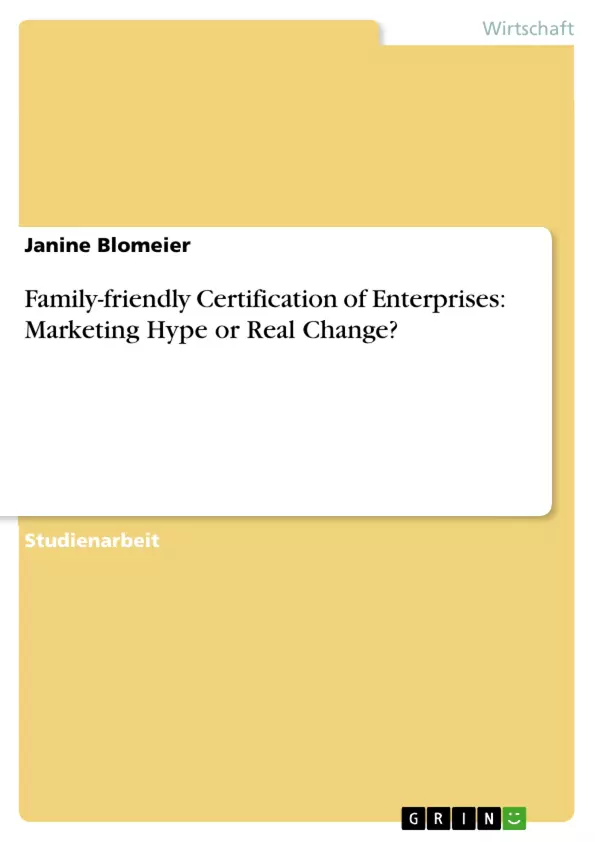Work-life balance or also called life-domains balance is the challenge to balance life and work at the same time. The “Rush-Hour of Life” is the stage of life when young people finish their education and are about to enter the labor market but also want to have a family or work on their relationship. Balancing several life domains like work, education, family, personal interests or the social life might cause issues and stress. Especially with families in who the man and the woman are both focused on their careers but also don’t want to neglect or spend less time with their children or friends and family. In that stage of life it’s optimal to work on a successful career but it also might be the perfect time to have children. A lot of changes like the increase of women’s participation in the labor market and the force to be flexible at work and available 24/7 due to the globalization of markets influence the decision. Gender differences in life-domains balance are shown in the fact that women deal with more family-to-job and job-to-family conflicts than men. These conflicts indicate stress and lead to the major issue of having less to no children in most European countries. As this being a societal issue, there is a need for structural measures like public childcare, financial measures like child-related subsidies or attitude-related measures like promoting the high value of children and multi-children families for our society.
Inhaltsverzeichnis
- Overview of the topic
- What are family-friendly policies?
- Work-life balance
- Family-friendly policies
- Family-friendly policies in history
- Family-friendly policies now
- Family policies by the government
- Family-friendly policies in enterprises and institutions
- Data and findings
- Audit and certification
- Audit work and family.
- Process of the audit
- Sphere of activities of the family and work audit
- Audit family-friendly university of applied sciences Aschaffenburg...
- Auditing the university.
- Family friendly policies at the university...
- Survey results.
- Survey results of students and employees
- Re-entry into the labor market
- Professional training during parental leave
- The importance of flexible working schedules.......
- The importance of flexibility if the child gets sick.
- The importance of child care at work.
- The importance of financial support for child care by the enterprise
- The importance of the possibility to work at home.
- Would men stay at home and raise the child/children?
Zielsetzung und Themenschwerpunkte
Die Arbeit untersucht die Bedeutung von familienfreundlichen Richtlinien für Unternehmen und analysiert, ob diese tatsächlich eine realistische Veränderung bewirken oder nur ein Marketing-Hype darstellen.
- Definition und Bedeutung von familienfreundlichen Richtlinien
- Die Auswirkungen von familienfreundlichen Richtlinien auf die Work-Life-Balance
- Die Rolle von familienfreundlichen Richtlinien im Kontext von Mainstreaming und Diversity Management
- Die Analyse von Daten und Fallstudien zu familienfreundlichen Richtlinien in Unternehmen
- Die Bedeutung von Audits und Zertifizierungen zur Bewertung von familienfreundlichen Richtlinien
Zusammenfassung der Kapitel
Das erste Kapitel definiert familienfreundliche Richtlinien und erklärt die Bedeutung der Work-Life-Balance. Es analysiert die historischen Entwicklungen von familienfreundlichen Richtlinien und zeigt die Herausforderungen auf, denen sich Familien im 21. Jahrhundert gegenübersehen.
Das zweite Kapitel untersucht die aktuelle Situation von familienfreundlichen Richtlinien in Unternehmen und Institutionen. Es beleuchtet die Rolle der Regierung bei der Förderung von familienfreundlichen Richtlinien und analysiert die verschiedenen Ansätze, die von Unternehmen umgesetzt werden.
Das dritte Kapitel präsentiert Daten und Ergebnisse aus Audits und Zertifizierungen von Unternehmen im Hinblick auf ihre familienfreundlichen Richtlinien.
Das vierte Kapitel analysiert die Ergebnisse einer Umfrage unter Studenten und Mitarbeitern einer Hochschule im Hinblick auf ihre Erwartungen und Erfahrungen mit familienfreundlichen Richtlinien.
Das fünfte Kapitel untersucht die Bedeutung von flexiblen Arbeitszeiten, Kinderbetreuung am Arbeitsplatz und finanzieller Unterstützung für die Vereinbarkeit von Familie und Beruf.
Schlüsselwörter
Familienfreundliche Richtlinien, Work-Life-Balance, Diversity Management, Mainstreaming, Audits, Zertifizierungen, Unternehmenskultur, Mitarbeitermotivation, Re-Entry, Flexible Arbeitszeiten, Kinderbetreuung, Finanzielle Unterstützung.
Häufig gestellte Fragen
Was bedeutet „Work-Life-Balance“?
Es beschreibt die Herausforderung, verschiedene Lebensbereiche wie Arbeit, Familie, Bildung und persönliche Interessen stressfrei miteinander zu vereinbaren.
Was ist das Ziel einer familienfreundlichen Zertifizierung?
Zertifizierungen (wie das Audit berufundfamilie) bewerten und fördern strukturelle Maßnahmen in Unternehmen, um die Vereinbarkeit von Beruf und Familie zu verbessern.
Sind familienfreundliche Richtlinien nur Marketing?
Die Arbeit untersucht, ob solche Maßnahmen tatsächliche Veränderungen in der Unternehmenskultur bewirken oder primär dem Imagegewinn dienen.
Welche Maßnahmen fördern die Vereinbarkeit konkret?
Dazu gehören flexible Arbeitszeiten, Homeoffice-Optionen, betriebliche Kinderbetreuung und finanzielle Unterstützung bei der Betreuung.
Was ist die „Rush-Hour des Lebens“?
Es bezeichnet die Lebensphase, in der Karriereaufbau und Familiengründung zeitlich zusammenfallen, was oft zu Konflikten und Stress führt.
- Arbeit zitieren
- Janine Blomeier (Autor:in), 2013, Family-friendly Certification of Enterprises: Marketing Hype or Real Change?, München, GRIN Verlag, https://www.grin.com/document/275845



